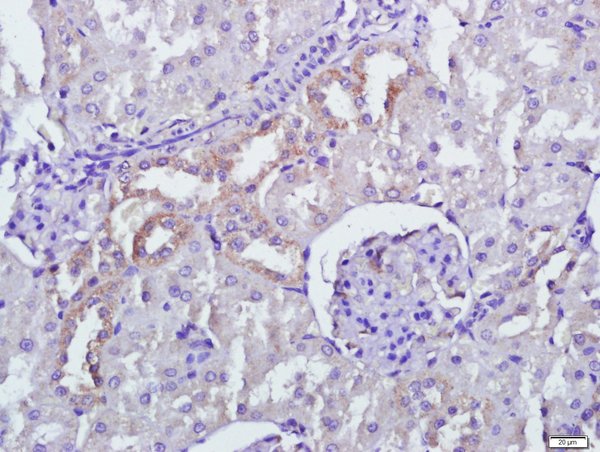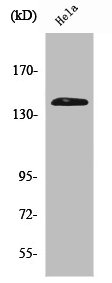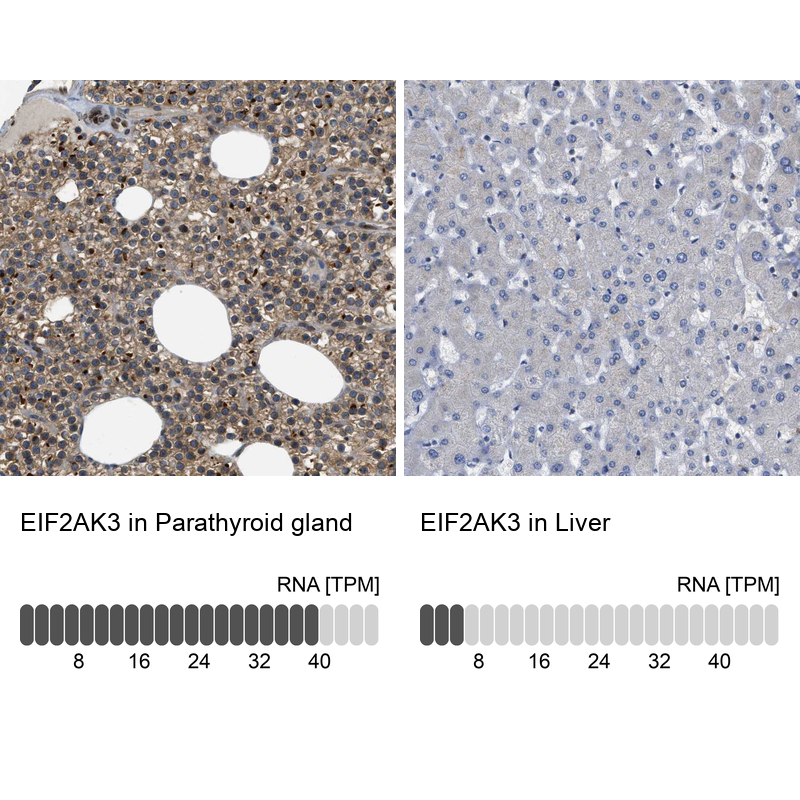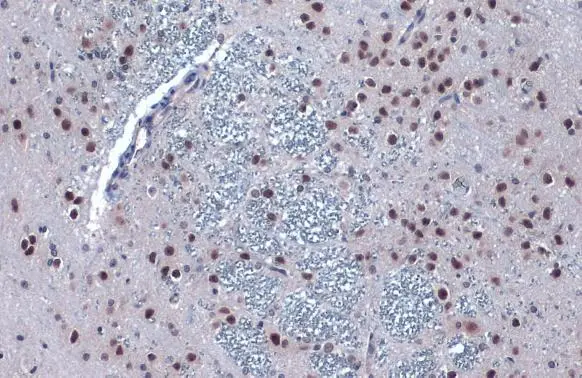![WB analysis of HEK293 (1) and PERK(AA: 929-1116)-hIgGFc transfected HEK293 (2) cell lysate using GTX82759 PERK antibody [5G5]. WB analysis of HEK293 (1) and PERK(AA: 929-1116)-hIgGFc transfected HEK293 (2) cell lysate using GTX82759 PERK antibody [5G5].](https://www.genetex.com/upload/website/prouct_img/normal/GTX82759/GTX82759_20170912_WB_w_23061322_763.webp)
WB analysis of HEK293 (1) and PERK(AA: 929-1116)-hIgGFc transfected HEK293 (2) cell lysate using GTX82759 PERK antibody [5G5].
PERK antibody [5G5]
GTX82759
ApplicationsWestern Blot, ELISA
Product group Antibodies
ReactivityHuman
TargetEIF2AK3
Overview
- SupplierGeneTex
- Product NamePERK antibody [5G5]
- Delivery Days Customer9
- Application Supplier NoteWB: 1/500 - 1/2000. ELISA: 1/10000. *Optimal dilutions/concentrations should be determined by the researcher.Not tested in other applications.
- ApplicationsWestern Blot, ELISA
- CertificationResearch Use Only
- ClonalityMonoclonal
- Clone ID5G5
- ConjugateUnconjugated
- Gene ID9451
- Target nameEIF2AK3
- Target descriptioneukaryotic translation initiation factor 2 alpha kinase 3
- Target synonymsPEK, PERK, WRS, eukaryotic translation initiation factor 2-alpha kinase 3, PKR-like ER kinase, PRKR-like endoplasmic reticulum kinase, pancreatic EIF2-alpha kinase, pancreatic eIF-2alpha kinase, protein tyrosine kinase EIF2AK3
- HostMouse
- IsotypeIgG1
- Protein IDQ9NZJ5
- Protein NameEukaryotic translation initiation factor 2-alpha kinase 3
- Scientific DescriptionThe protein encoded by this gene phosphorylates the alpha subunit of eukaryotic translation-initiation factor 2 (EIF2), leading to its inactivation, and thus to a rapid reduction of translational initiation and repression of global protein synthesis. It is a type I membrane protein located in the endoplasmic reticulum (ER), where it is induced by ER stress caused by malfolded proteins. Mutations in this gene are associated with Wolcott-Rallison syndrome. [provided by RefSeq, Jan 2010]
- ReactivityHuman
- Storage Instruction-20°C or -80°C,2°C to 8°C
- UNSPSC12352203






